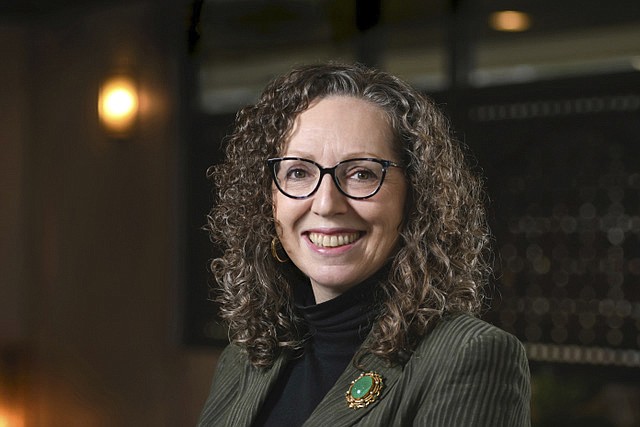February 19, 2025 at 12:04 p.m.
|
Updated May 30, 2025 at 11:05 a.m.
“But wanting to justify himself, he asked Jesus, ‘And who is my neighbor?’ ” — Luke 10:29
One thing that has never been in question when it comes to Gospel teaching is the commandment — part of the “greatest commandment” — to not only love and care for our neighbors, but to love them as we love ourselves. It’s not easy to live out day to day. It requires a sacrifice that sometimes pushes up against our human tendency toward self-preservation and comfort. I speak from the personal and not just the universal here. Caring for and loving strangers, those in the shadows of our society, is part of what makes the Gospel so radical. It was radical when Jesus preached it; it is radical today.
Jesus answers the above question in the Gospel of Luke with the Parable of the Good Samaritan, an impossible-to-ignore story about the righteous who choose to do the wrong thing and the one who is despised by society but does the right thing. We like to imagine ourselves in the role of the Good Samaritan, remembering times we may have donated to a food drive or helped out at a soup kitchen or maybe even literally helped someone up off the ground. But we don’t have to dig too far to uncover the fears and built-in biases that often prevent us from committing ourselves fully and without condition to what Jesus demands.
In our society today, we can look around our own towns, cities and larger country and see the many men, women and children who are figuratively — and in many cases quite literally — on the side of the road in need of mercy. We take cover in the broad brushstrokes that attempt to cast all of the marginalized as criminals and cheats. We convince ourselves that our willingness to look away is grounded in preservation of orderliness. Like the priest and the Levite in the parable, we rush by, clutching our convictions and hoping someone else will fulfill the Gospel mandate for us. But what if we are the people we are waiting for?
Pope Francis, in a recent letter to the U.S. bishops, said: “Christians know very well that it is only by affirming the infinite dignity of all that our own identity as persons and as communities reaches its maturity. Christian love is not a concentric expansion of interests that little by little extend to other persons and groups. …The human person is a subject with dignity who, through the constitutive relationship with all, especially with the poorest, can gradually mature in his identity and vocation. The true ‘ordo amoris’ (order of love) that must be promoted is that which we discover by meditating constantly on the parable of the ‘Good Samaritan’ (cf. Lk 10:25-37), that is, by meditating on the love that builds a fraternity open to all, without exception.”
The pope’s powerful message calls us back to who we are not just as individual Catholics but as a universal Church, as the Body of Christ at work in our broken world today.
We take comfort in Jesus’ shared humanity with us, in his understanding of our suffering. For many of us who live with the privilege of security and relative safety, it’s often easy to overlook Jesus’ experience, along with Mary and Joseph, as a refugee fleeing violence, as displaced people dependent on the kindness of strangers in a foreign land. If we see that as just a story and not a fundamental truth in our history, it allows us to look away from those who are similarly persecuted.
What would Jesus do? Well, we don’t have to imagine; we know. And not only do we know what Jesus would do, we know what Jesus expects us to do:
“Which of these three, do you think, was a neighbor to the man who fell into the hands of the robbers?” He said, “The one who showed him mercy.” Jesus said to him, “Go and do likewise.” (Luke 10:36-37)
Mary DeTurris Poust is a writer, retreat leader, and spiritual director living in the Capital Region. Visit her website at NotStrictlySpiritual.com.
- ‘Hidden Glory’: Here are highlights from Bishop Varden’s meditations for papal Lenten retreat
- Mother Cabrini garners most votes as person to be depicted in planned statue for Chicago park
- Pope Leo XIV pens book introduction: ‘Only peaceful hearts can build a world of peace’
- In the footsteps of St. Oscar Romero
- Prolific catechist Paul Thigpen, who mused on extraterrestrial life, dies at 71
- Pro-abortion professor withdraws from University of Notre Dame institute appointment
- Palm Beach’s new shepherd ordained, installed during emotional, spiritual, joyous Mass
- Inviting pilgrims back is more than business, it’s family history, Holy Land shop owners say
- Pope Leo’s visit to Spain could spark a much-needed ‘spiritual revival’
- Empty school desks on Minnesota Capitol grounds signify children lost to gun violence








Comments:
You must login to comment.